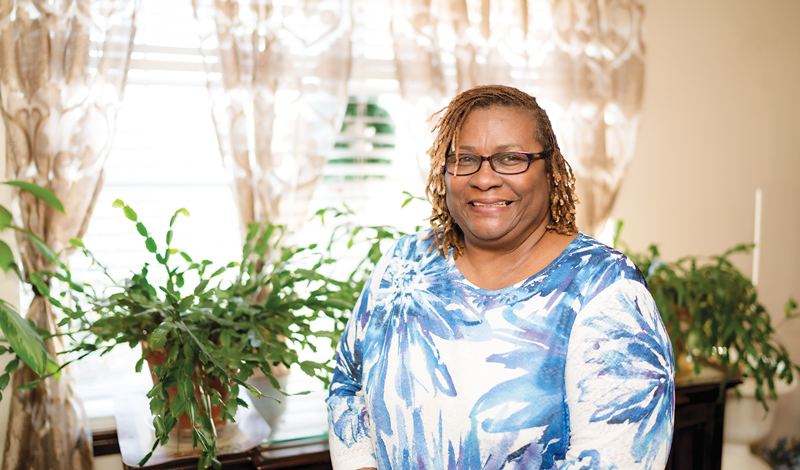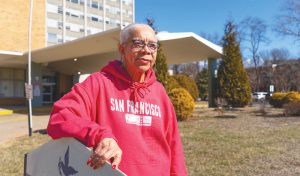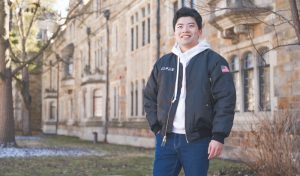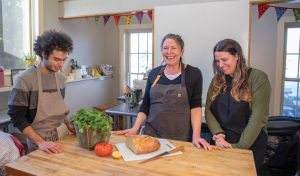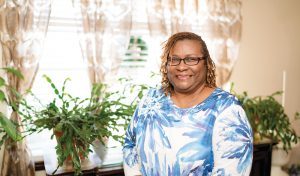by Diann Oden
Birmingham, Ala.
In 2001, my son crossed Tacoma Narrows Bridge and drove into Spanaway, where our friend lay dying.
“She’s in and out,” he warned me, but I urged him on.
“That’s all right, that’s just fine. Put me to her ear. She’ll hear me.”
Chanting in her ear through my son’s cellphone, I reflected on the debt of gratitude I owed her, the person who introduced me to Buddhism, with whom I could discuss anything. One year earlier, she’d called to tell me she’d been diagnosed with lung cancer. I remembered what she’d told me at that crucial time.
“I’ll be alright,” she’d said. “And even if I’m not, still, I’ll be alright. Even if I have to lie down to chant, even if I can only chant in my heart, that’s what I’ll do. Know that’s what I’ll do.” She wasn’t afraid—not of cancer, not of death, not of anything.
“Thank you,” I told my son when I was done. “Of course,” he said. Somehow, I was unprepared for his call the following morning, bearing the news that she’d passed away. I lost the main person I’d once called on for everything and anything.
It was her that I called in 2000 with something like a confession. Long ago, my husband nicknamed me “the clerk”—for my work balancing ledgers. The only problem was I wasn’t doing so at home. I was spending almost as much as we were bringing in, taking out lines of credit to shore up funds for payments on other lines of credit. “Robbing Peter to pay Paul,” as Christine put it when she found out.
“I don’t know what—” I began, but she cut me off.
“Yes you do,” she said. “Diann, you know what to do. You go to the Gohonzon and have an honest conversation. Ain’t nobody gonna know what’s said—that’s between you and the Gohonzon. The answer will come.”
By this time, she’d received her diagnosis. But she spoke with confidence and drew me closer to my empowerment, something she did for many others as well. Her strength came from the vow she shared with our mentor, to endlessly point oneself and others to the path of human revolution. In this case, the path was clear: I had to have an honest conversation with my husband. But walking that path was another matter. Days passed, then weeks, months and years. Christine passed and I was shaken to my core. I was left with her words: “You know what to do.”
Nearing retirement, Robert and I moved to Birmingham, Alabama, in 2002. More than anywhere I’d been, I found that courage was needed to do shakubuku in Alabama, where churches rub shoulders on every street corner. Here, you’ve got to summon your courage with strong daimoku. Each time I shared Buddhism with someone, I felt my heart expand. But something else was happening at the very same time—our savings were dwindling. Being retired, we no longer had an income to balance my spending habits. Quickly, things got bad, then worse. The time had come for me to put the courage I’d developed to the test. One morning, in 2010, after a vigorous morning gongyo, I turned to Robert and said, “There’s something you’ve got to know.”
Long ago, I nicknamed Robert “my rock.” If I need to do a home visit, I just say the word and he’ll drive me, waiting patiently in the car with a copy of the World Tribune or the local newspaper. My rock. He wasn’t shaken by the news. “Wow,” he said quietly. “I didn’t know.”
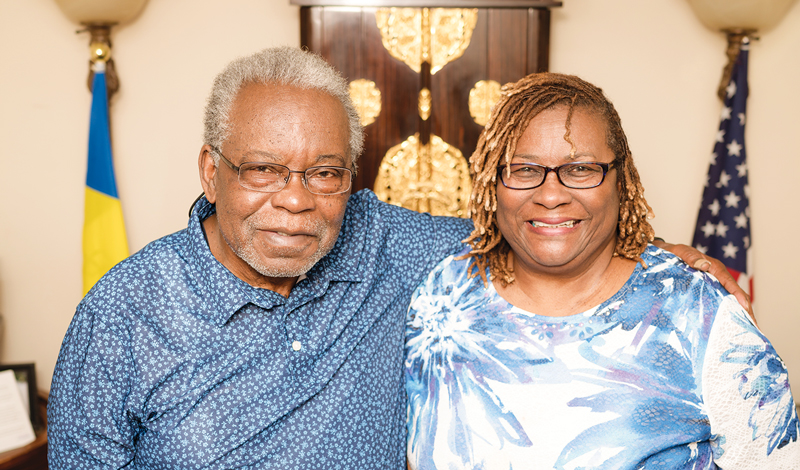
We sat down and read together something I’d found in The New Human Revolution—Ikeda Sensei’s response to a young woman whose father’s business had gone bankrupt twice. Sensei encouraged her:
I see. That must have been very difficult for you too. But the suffering you’ve experienced has made you into a person who can understand the suffering of others. It’s a shame that the family business went bankrupt, but that happens frequently in our world. The important thing is not to go bankrupt as a person. Never be defeated (The New Human Revolution, vol. 25, p. 224).
We agreed that tackling this together would be a new phase for our human revolution. We declared bankruptcy on the debt owed and made our way out of our predicament. I changed my spending habits and we’ve since accumulated greater financial fortune than ever. But the greatest fortune I gained was courage.
There are days—cold days, in particular—when I’d rather stay inside and nap. Days like these are trouble for my knees, but I wake up and chant strong daimoku and remember that I have a mission in Alabama. Somewhere someone is waiting to hear about Nam-myoho-renge-kyo. I rub my knees and bundle up and set out to find them.
Sometimes it’s a young person at the grocery store, but sometimes it’s a long-time member and old friend. Last year, I was appointed the Many Treasures Group region representative and have since been going out to visit our pioneers. The Alabama-Florida Panhandle is vast and I’m not always able to go in person, in which case, I call. Whether by car or by phone, I go as a friend to talk and listen. If there’s something they want me to hear, I’ll hear it. We chant and, if in-person, sit down over tea to read Sensei’s encouragement. Each time I share Buddhism, with old friends or new, I feel my heart expand. Even if we’re a hundred miles apart, our voices draw us near—near to each other and our vow to awaken ourselves and others to unshakable happiness.
Q: What advice would you give the youth?
Diann Oden: Never give up on your dreams. Live your lives such that you can say at the end, “I have no regrets.”
You are reading {{ meterCount }} of {{ meterMax }} free premium articles

